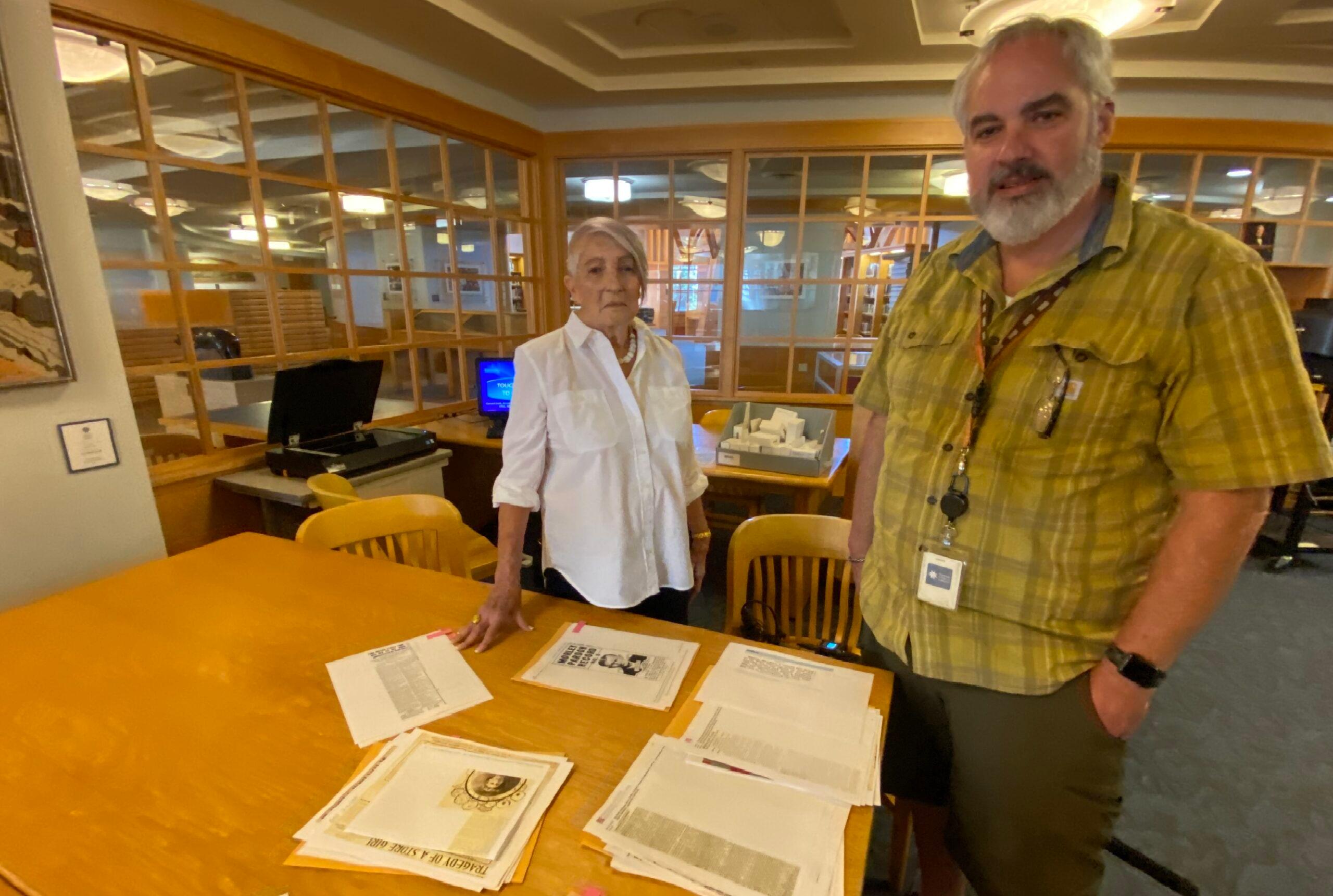
Abortion access — some states have outlawed it, others have seen scores of patients from out of state — has been in the news since the U.S. Supreme Court repealed the Constitutional right to an abortion two years ago.
But looking back through history shows that unplanned pregnancies and access to abortions have been in the news for a long, long time.
More than a century ago, readers of the Rocky Mountain News learned about the death of a young woman who worked in a shop named Maude, who was trying to terminate a pregnancy. A woman named Mrs. Proctor, the wife of the manager of a “remedy company,” was charged with manslaughter in Maude’s death.
A four-panel editorial cartoon entitled “Tragedy of Store Girl” showed the events that led to Maude’s death. It showed her talking in a shop to a mustachioed man in a hat, then having drinks with him, then she’s bedridden. The final frame shows a body in a morgue.
The story was resurfaced by Alex Hernandez, a special collection librarian at the Denver Public Library, who has written about dozens of cases of women who died in self-induced or unsafe abortions.
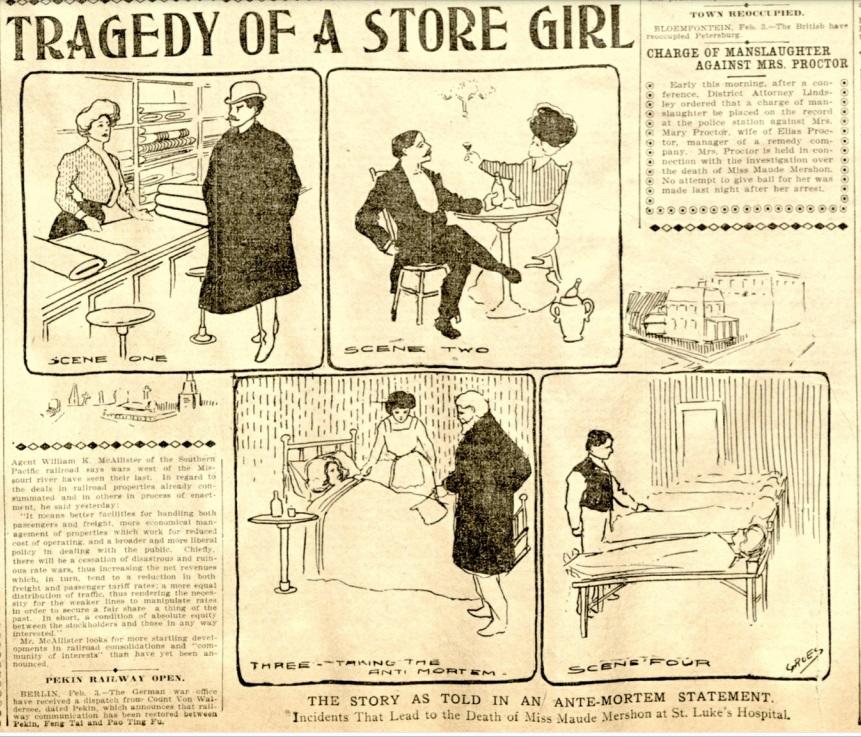
Often it was performed by someone without the necessary training or in unhygienic conditions.
“The more I started digging into this, I started seeing the names of women and girls who had gone through this,” he said, noting he thought it important to remember their stories.
For abortion rights supporters, the research and the history are relevant today as women in states where the procedure is now severely limited scramble for options.
“This isn't ancient history,” said Adrienne Mansanares, the president and CEO of Planned Parenthood of the Rocky Mountains. “It's happening in Texas now. It's happening in Oklahoma now. It's not far away. It's now in a very contemporary way, happening state by state.”
After the 2022 Supreme Court decision, known as Dobbs overturned Roe, a number of red states have limited abortion rights. Colorado, where that access is protected, has seen a sharp increase in people coming here for the procedure.
Mansanares said it’s a matter of health care.
“It is an incredibly dangerous thing to have a pregnancy and to give birth,” she said. “But we don't talk about that, and we don't look at that.”
Still, details of a terminated pregnancy were considered news in Colorado in the early 1900s. Hernandez said Maude’s story contained striking details.
“She was in the hospital deathly ill, and the doctor told her he wouldn't work on her any further until she said who had done this,” Hernandez said. He explained the news coverage was “kind of blaming her for the situation."
"But we do have her photo, which I think is quite haunting,” he said.
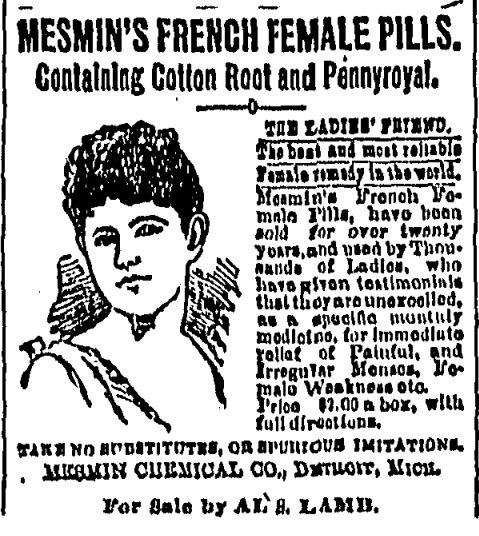
Alex Hernandez got interested in digging into the historical record after learning about old newspaper ads, dating back more than a hundred years. They were for abortifacients, substances, and medications that cause abortions. 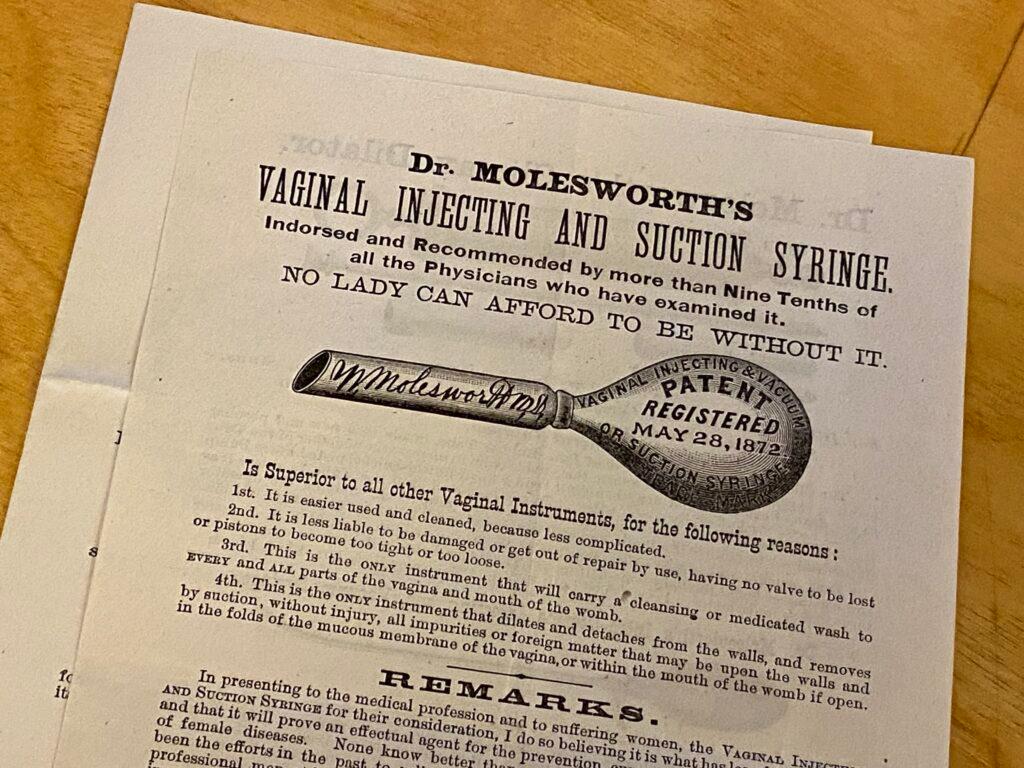
Alex Hernandez got interested in digging into the historical record after learning about old newspaper ads, dating back more than a hundred years. They were for abortifacients, substances, and medications that cause abortions.
Spread out on a table on the fifth floor of the main Denver library building, in the Western History and Genealogy Department, is some of his research.
It includes photocopies of old articles, handwritten letters, and ads. One is for Mesmin’s French Female Pills, containing cotton root and pennyroyal, a traditional herbal abortifacient. A headline from 1918 reads “Girls’ Death Blamed Upon Operation She Performed On Self.”
Before Roe, the practice was outlawed. So desperate women and girls sought to terminate their pregnancies, sometimes self-performed, sometimes from the providers of the day, sometimes with unregulated abortifacients.
When things went awry, it could create grim headline news.
“A lot of these women died pretty horribly, either from blood loss or septicemia,” Hernandez said, “which is a terrible way to go.”
He documented cases of nearly 50 women who died, most from before the 1940s, but said it's likely a small fraction of the total. He’s posted what he found on a blog called Abortion in Colorado.
“I'm just very grateful that we don't live in those times,” said novelist and former journalist Sandra Dallas who joined Hernandez at DPL’s Central Library.
“My husband's mother died from a self-induced abortion in 1933, and I can only imagine how that changed his life. He was an infant at the time,” Dallas said. “We found out about it very late. It was a family secret. You didn't talk about things like that.”
He said many of the accounts Hernandez unearthed are filled with tragedy. The news stories focus mostly on the women, not the fathers.
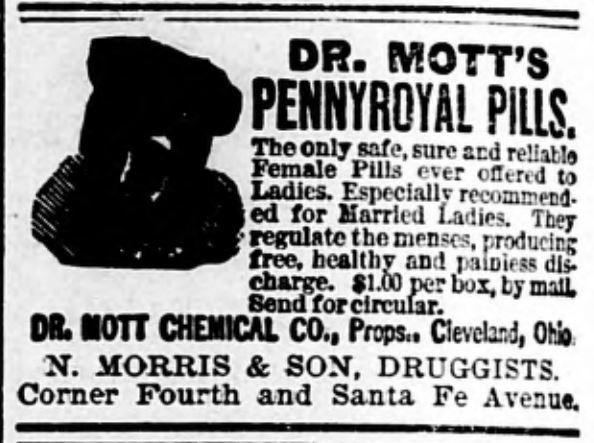
Dallas praised the librarian’s work in compiling the information.
“I'd never read anything like this about Colorado,” Dallas said while noting “how sad it was.”
Dr. Nancy Fang of the Comprehensive Women’s Health Clinic said medicine has advanced in recent decades. But with the changes after the Dobbs decision, “I think it's worse than back to the future because we live in a world where we have the technology, we have the medicine, to prevent anything like that from happening."
Those on the other side of today's abortion debate don’t see it that way.
"Whether now or decades ago, the intentional termination of a pregnancy is wrong," said Will Duffy, president of Colorado Right to Life, which opposes abortion.
“There are always going to be inherent risks with committing crimes. And so abortion is not an exception to that,” Duffy said. “When someone is going to attempt to end the life of their unborn child, they're going to have complications.”
One thing that stands out on the list Hernandez has compiled is what appears to be a lack of diversity among the surnames, which seem to be made of those almost entirely of European descent.
“I can only speculate, but I know a lot of immigrant groups for the first few decades after they arrive tend to be very insular,” he said. “So I would wager a lot of those women had specific midwives that they knew to go to who may have been more experienced as opposed to a lot of the Anglo women.”
The broader issue is not just a modern one. It goes back millennia.
“The way I put it is as far back in the historical record as we can look,” said historian Mary Fissell from Johns Hopkins University.
Fissell is working on a book set to be published next year on the history of abortion, tentatively titled “Long Before Roe.”
She said that the long story of terminating unwanted pregnancies shows periods of repression followed by toleration.
“So there's this weird kind of ebb and flow. So I feel like at the moment, we're in a really terrible time and there's going to be a lot of misery and awfulness,” Fissel said. “But actually it's not going to last because it never does.”
She credited Hernandez with tracking down this information.
“We need to know the history. And I think it matters to people to know their local history,” Fissel said.
But she did take issue with the list Hernandez compiled, even though the people named died decades ago.
“In my book, I don't give last names for women who got abortions because I don't want to perpetuate that name and shame policy that was designed to punish women,” said Fissel, professor in the Department of the History of Medicine at Johns Hopkins.
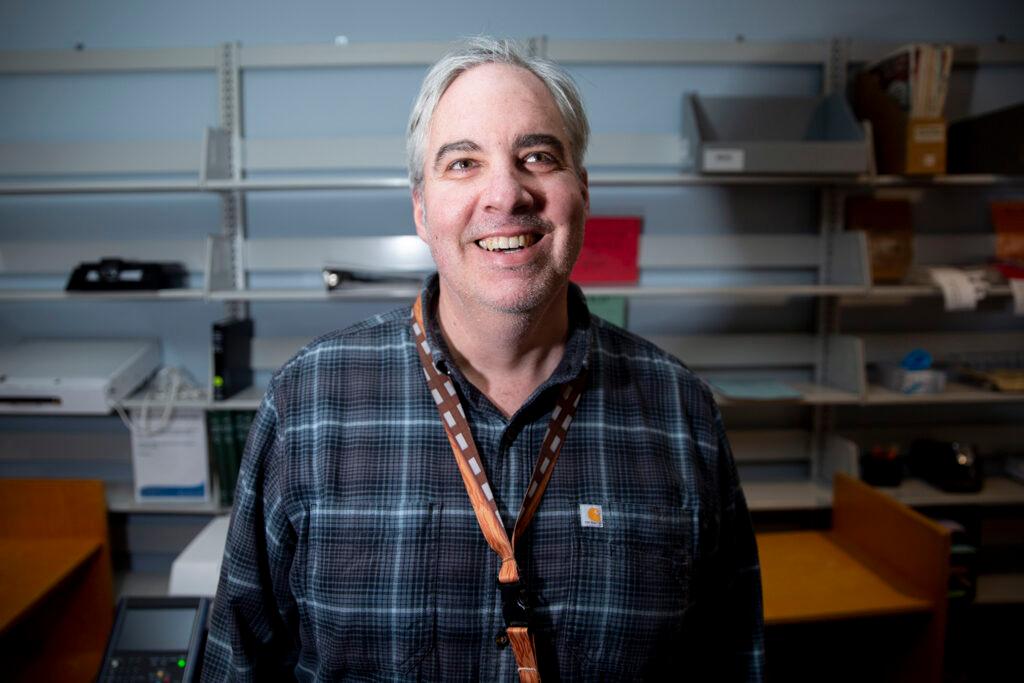
In response, Hernandez said the only shame should be on lawmakers of the day who enacted policies that caused the deaths.
“It seemed like the more they tried to tighten the regulations, the more women and girls died,” he said.
Hernandez said he hoped the research would help shed light on stories that until now have mostly been lost.
Planned Parenthood of the Rocky Mountains is a financial supporter of CPR News. Financial supporters have no editorial influence.
- Colorado abortion amendment campaign kicks off on anniversary of Roe v. Wade decision
- Protect abortion in Colorado’s state constitution? Backers of a proposed amendment hope voters will do just that
- Abortion numbers rise sharply in Colorado, driven by out-of-state patients
- One year after the end of Roe, Colorado laws have made it a magnet for out-of-state patients








